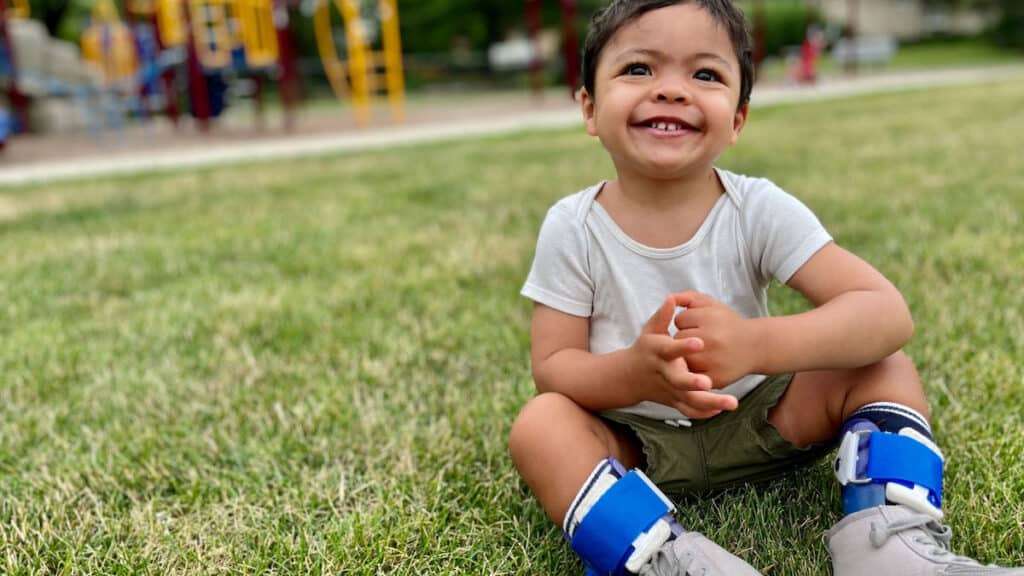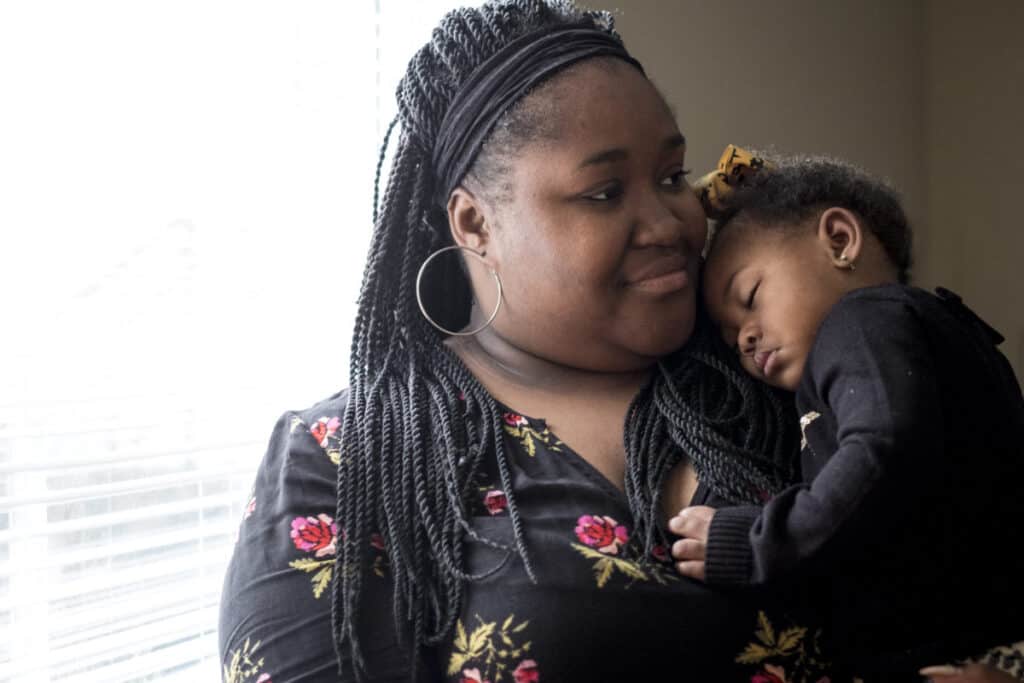If your child is over 2 and has delays or disabilities, it’s time to get ready for the Early Intervention transfer to preschool. Early Intervention (EI) provides services until a child’s 3rd birthday. (If your child is getting ready to start pre-school but is not in Early Intervention, keep reading!)
When your child turns 3, one of two things will happen:
- Your child does not qualify for continued services. You may choose to look for services in the community
- Your child still qualifies for services. They should start to get these services through your local school system
The school will do their own evaluation to see if your child qualifies for services through Special Education. This should happen before your child turns 3. If your child is not in Early Intervention, here’s how to get your child evaluated for Special Education.
Get ready for the Early Intervention transition to preschool
The process of getting ready for your child to transition out of EI should start when your child is 2 years and 2 months old. It can feel scary to think about your child moving to the next phase. But EI has a formal process for this transition and will support you through the process.
Ask your EI Service Coordinator to tell you about the process. You can also take a local Turning 3 workshop to learn more. Your Service Coordinator should be able to tell you when and where to find these workshops.
See a timeline for the transition out of EI
Create a Transition Packet
As you start to work with the school system, you will need to share records and information about your child. It will help to have all of this in one place. You may want to organize your records in a binder or on a google drive.
Your transition packet should include:
- The Individual Family Service Plan (IFSP)
- Medical records
- Evaluation reports
- Contact info for all service providers your family has used
- Your own notes about your child
- Anything else you want the school system to know about your child
Have your child evaluated by the school district
Your EI Service Coordinator can walk you through the process of requesting the evaluation from your local school system.
Once you have made the request, the school system has 45 school days by law to complete the evaluation.
When the evaluation is done, the school will schedule an eligibility meeting to see if your child qualifies for school-based services. You and your EI Service Coordinator will both be a part of this meeting. If your child qualifies, the IEP (which is like the IFSP) will include the plan for what services your child will get and how often.
Learn more about the evaluation and IEP
Sometimes a child who qualifies for EI does not qualify for school-based services because school systems may have different criteria for who qualifies. EI focuses on the whole family system, but the school system focuses on the child. This means that sometimes a child has not yet caught up on their developmental milestones but may not qualify for services through the school.
Attend the Transition Planning Conference
After your child has been evaluated by the school system, EI will schedule the Transition Planning Conference. This is a meeting with your family Service Coordinator and other providers who work with your child. You can invite anyone else who knows your child.
Before this meeting, think about how your child is doing. Make some notes about what kind of services you think they still need. What are your goals for your child over the next few years?
At the meeting, you and the team will:
- Talk about options for life after EI. Your child’s new setting may be daycare, private or public preschool, being at home (without services), or getting services through the school system
- Discuss activities that will help your child adjust to the new setting. These may include visiting a new program, creating a picture book about the change, or having a goodbye party with their EI providers
- Identify community-based services and activities for your child, for you, or for siblings if needed
- Complete the Transition Plan, which will reflect everything you talk about in the meeting
Help your child adjust to a new environment
EI is usually a very home-based support system. Some kids go to community playgroups or get services at daycare, but most kids have been seeing their specialists in their home with their families.
In this next phase, you can help your child practice being in groups with other kids and getting used to other community activities. This will help with their development even if they are not going to daycare or preschool.
Here’s what you can do:
- Think about what your child likes to do. Do they like reading? Music? Active play? Nature? Talk to them about what they like to do for fun outside of the house
- Look at classes or free activities in your town. Libraries often have story time or sing-alongs. Your town may have art, sports, or dance programs for young kids. You can find out about activities from local publications for parents, local Facebook groups for parents, and friends with young children. (Check out the listings in our Louisiana and Massachusetts Disability Service Finders)
- If your child will be going to daycare or preschool, ask if they can come visit before they start. You can go together to meet the adults, the other children, and get your child used to the setting
What if my child no longer qualifies for services?
Your EI Coordinator can help you find support outside of EI, including:
- Fun activities for your child to join, like art classes, sports, play groups, or story times
- Childcare or a preschool that fits your child’s needs
- Other informal supports
If you think your child still needs services like speech therapy, occupational therapy (OT), or physical therapy (PT), you can look for providers in your area. Your insurance may be able to pay for some services, or you can pay out of pocket.
********
LA and MA:
If you are in Louisiana or Massachusetts, you can use our Disability Service Finder to find services like speech therapy, OT, or PT near home.
Louisiana Disability Service Finder (en español)
Massachusetts Disability Service Finder (en español)
********
My child qualified for school-based services. What’s next?
If your child qualifies for school-based services, these services can start on your child’s 3rd birthday.
Services are provided through the Special Education Department, sometimes called Exceptional Student Services or the Office of Student Services.
Don’t be scared by the term Special Education! It only means that your child will get special services to help them learn in school. It does not mean they are any less smart than others, just that they need some support at this time to catch up or stay on track.
Your child’s IEP team (which includes you) will work together to create goals and decide on services your child will get from the school system.
Services in your child’s IEP may include:
- Therapies from specialists like you have with EI: Speech therapy, OT, PT, etc.
- Special preschool programs
- Extra support in a preschool for typically-developing children
Your child may also qualify for special transportation. You can ask about this in your IEP meeting.
Where will your child get services? The school district will tell you the options when you meet. Services may happen in your child’s preschool program or at the local school or community center. If this is the case, it is extra important to keep track of your child’s services and progress, and stay in touch with their therapists. Wherever the services happen, you must find a way to communicate with the therapists and keep track of the services and progress.
One big difference between EI and school is that EI serves the whole family and includes support for parents and siblings, while the school system only serves the child. This means some of the family-based services you might have been getting through EI will have to come from community-based services. Your insurance may cover some of these supports.
If you need more help with this transition, contact your local Parent Training and Information Center (PTIC). They often run Turning 3 workshops, and can advise you during this process.
Learn more about the Early Intervention transition to pre-school:
What to do once your child is set up with school-based services



